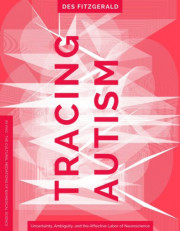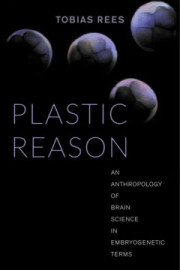The problems with XR headsets that even Apple can’t fix
A history of wearables at Augmented World Expo 2013 Tech companies have been trying to make VR/AR/XR headsets go mainstream for over three decades. Here’s what I’ve discovered in…
A history of wearables at Augmented World Expo 2013 Tech companies have been trying to make VR/AR/XR headsets go mainstream for over three decades. Here’s what I’ve discovered in…
The narrative around eating disorders is shifting. Researchers and activists have advanced a more complex understanding of eating disorders by presenting cutting-edge scientific and clinical research …
A Workshop Report by the Neuroscience and Society Network Introduction The Neuroscience and Society Network organised a workshop on 11-12 July 2018 at the Institute of Psychology, Psychiatry…
Neuroscience The brain is a wild and wonderful thing. Even in a damaged, broken, or diseased state, it performs wonders. Oliver Sacks, neurologist and prolific writer, knew this…
Lives change dramatically as dementia progresses. Using observations of people suffering from obsessions and compulsions, I will analyse this change along three dimensions. Obsessive-Compulsive Disord…
Among the many tech-focused booths at the Consumer Electronics Show (CES) early this year, one stood out in particular: an exhibition of manufactured bodies, or “sleeves,” into which…
As I’m sure many of you saw, this month started with the successful launch of SpaceX’s Falcon Heavy, giving a boost (sorry) to privatized space travel, and providing…

Fernando Vidal and Francisco Ortega’s Being Brains: Making the Cerebral Subject is a fine-grained account of the “neuro-” in a range of disciplines, and, importantly––crucial…

Des Fitzgerald writes of his book, Tracing Autism, “This is a book about scientists talking about their own practice, in tones that are beset by ambiguity, uncertainty, complexity,…

Plastic Reason: An Anthropology of Brain Science in Embryogenetic Terms by Tobias Rees University of California Press, 2016, 352 pages Plastic Reason is an excellent occasion to…
This month’s web round up focuses on notions of treatment as enhancement…or vice versa? I’ve recently come off a stretch of spending quite a lot of time reading…

Are balance and movement something that can be culturally shaped? Why aren’t female rats being used in drug studies? In this episode of This Anthropological Life we team…

Plastic Reason: An Anthropology of Brain Science in Embryogenetic Terms by Tobias Rees University of California Press, 2016, 352 pages In the prefatory pages of Plastic Reason,…

All In Your Head: Making Sense of Pediatric Pain by Mara Buchbinder University of California Press, 2015, 256 pages Pain has a famously intangible quality. To paraphrase…
The web roundup for this month is a sequel to last month’s roundup on Mind, Consciousness, and Artificial Intelligence. I will address another interface between machines and minds,…
This month’s web roundup comes through a bit late – paradoxically- due to technical difficulties (my computer died!). Although I will be able to recover most of my…

A Critical Moment: Sex/Gender Research at the Intersections of Culture, Brain, and Behavior FPR-UCLA 2016 Conference Summary Emerging theories in neuroscience – fueled by new technologies in brain im…

Rethinking Interdisciplinarity Across the Social and Neurosciences by Felicity Callard and Des Fitzgerald Palgrave (Pivot series), 2015, 160 pages The first thing you notice when picking up a…

Phantom Limb: Amputation, Embodiment, and Prosthetic Technology by Cassandra S. Crawford NYU Press, 2014, 314 pages The title of this important book gives only the slightest hint of…
Bounded categories and category-bounded spaces are always of interest. This month, there were salient discussions of two such spaces: the (gendered) public bathroom and the brain. Bathrooms Public…

Professor Margaret Lock has published an exhaustive ethnography of Alzheimer disease research in her latest book, The Alzheimer Conundrum. I recently reviewed this book for The Australian Journal of…
People will often feel that the return trip covering the same geographical distance requires less time to complete. It doesn’t. When all factors are equalized–same distance, traveling… —…
Workshop Report: King’s College London, 11 December 2014 Introduction Different forms of exchange between neuroscientists, social scientists, and humanities scholars have been emerging, and these have…